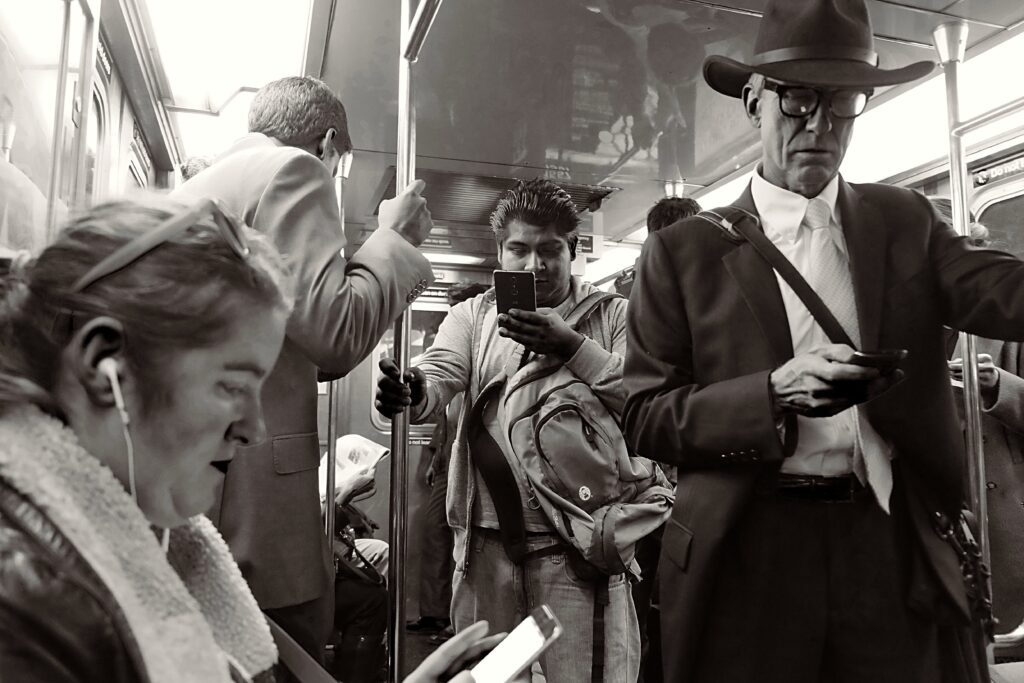I wrote a post in late November about the perfect travel earbuds that focused on my search for earbuds that would fit my needs. After that, I started seriously looking at the AirPods Pro. At first, I really balked at the idea of the AirPods; I thought the stems sticking out of the ears looked really ridiculous and that it was a frivolous purchase. However, a co-worker had recommended them and after some research, I picked up a pair. After having them for a few months, I have to say that I’m impressed. I mostly use the AirPods Pro for listening to music while commuting on the train, or to iPad video when on a plane, or occasionally for phone calls.
Audio Consumption
At the time that I bought the AirPods Pro I was traveling to New York City every week, a 5-6 hour flight, depending on winds. I spend my time on planes typically working while listening to music or with a television show on my iPad that I can kind of ignore (I like the noise). The AirPods Pro offer great noise cancellation that reduces the engine noise to a dull hum. It performs less efficiently when it comes to human noise, talking, crying, etc. when on the plane. I don’t know if this is because the headphones are working so hard to reduce the engine noise or if they just struggle with noncontinuous noise.
The audio quality for video is perfect for me, the noise cancellation makes it so I don’t have to have my iPad turned all the way up and the clarity is good enough that I didn’t notice any issues. For music, I am no audiophile but I was happy. The bass is enough for me without being so heavy I can’t enjoy a song. All in all, I am happy to listen to music on the AirPods Pro. When walking around town I typically use transparency mode just to be aware of my surroundings. In NYC this is a huge help to hear sirens or people honking when at crosswalks, etc. As soon as I would get to the subway, I turn on the full noise cancellation and don’t have to hear the screeching of a train coming into the station or other loud noises.
The two big things that I appreciate with the AirPods Pro is that they are comfortable to wear and the single charge life of the earbuds is as advertised, 4.5 hours. I could almost make it from takeoff to landing on a single charge with the AirPods Pro. I typically charged them around halfway through the flight just to make sure I could make a call if needed after landing. My skepticism on the comfort of the earbuds was very strong from the get go, but they proved me wrong. I have no issue leaving AirPods Pro in my ear for significant stretches of time. It took a little bit of trial and error to choose the correctly sized plastic ear insert but once I tested them all, I was able to pick the ones that were best for my comfort.
Calls – Observations
The AirPods Pro have been an up and down experience when it comes to phone calls. Typically I can hear calls just fine but my audio back to the call is frequently broken. I have not been able to pinpoint out why this is but it seems like the Bluetooth connection is a little more flimsy. Having the noise cancellation feature is great for calls because you can be walking down a busy street and hear a call perfectly.
Other Tidbits
I know that a lot of travelers love over the ear noise cancelling headphones but for me, they take up too much space in my bag for only being useful on the plane or in a place where I’m not moving around too much. The only upside of those over the ear headphones or even wired earbuds is being able to plug-in to inflight entertainment on the plane. With the AirPods Pro there is no way to connect to inflight entertainment. Because of this, I carry a wired pair of headphones as well which definitely not what I would like to do.
The other area where I am a little disappointed with the AirPods Pro is keeping them clean. The rubber earpieces seem to be ear wax magnets and they have a piece of mesh that makes them difficult to clean. It takes a bit of finesse to get any kind of cleaning element deep enough into the earpiece to get them clear which is annoying. There also seems to be a tendency of dirt and dust to get into the bottom of the charger which can potentially keep the AirPods Pro from charging when they are in their case. I wish it was easier to keep these elements clean but it’s a small complaint.
Summary
The AirPods Pro fit my needs of a walking around, on the plane, noise cancelling earbud perfectly. The battery life of 4.5 hours without a charge is great and the comfort level of the earbuds themselves allows me to leave them in for extended periods of time. The noise cancellation and transparency mode are really fantastic features that make going from noisy environments to areas where you need more awareness easy and responsive. My only real complaints are that the AirPods Pro are a little difficult to clean and grit/grime can keep them from charging. The phone calls can be hit or miss when it comes to audio but it’s usable for casual conversations. If you are traveling a lot or need some earbuds to walk around town, these are a great option and one that you should seriously consider even if you’ve had doubts about AirPods before.
* This post contains affiliate links to products on Amazon. These links pay me if readers click them.




